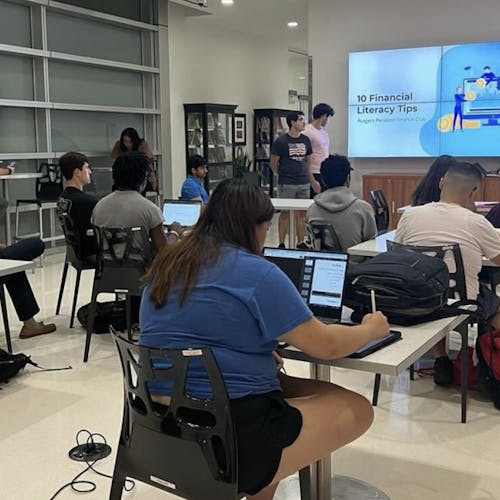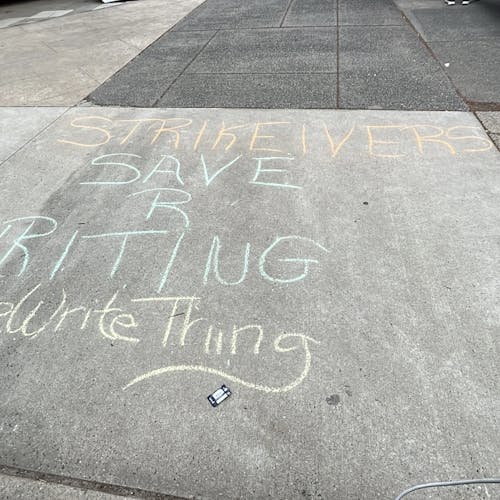Naomi Klein discusses Gloria Steinem Endowed Chair, impacts of new media during panel

Following Naomi Klein — journalist and human rights activist — being named the inaugural Gloria Steinem Endowed Chair in Media, Culture and Feminist Studies, the University hosted a dialogue on Sept. 21 that covered new media and the shape of various cultural movements.
Lisa Hetfield, interim director at the Rutgers Institute for Women’s Leadership, started the event by looking to the past and acknowledging Rutgers’ history in women’s education, notably the 100th anniversary of Douglass College, the College for Women at Rutgers and first public higher education for women.
“Rutgers has a long and proud tradition of firsts in women’s education,” Hetfield said.
The discussion began shortly after with Klein and Steinem answering questions posed by journalist Farai Chideya who moderated the event.
Steinem talked about the idea of silos and echo chambers, and concern for the women’s movement being stuck in a silo.
She said that as people change and individualize, they also need to understand that everyone is a unique human being. With that, she said Klein’s work has expressed that the women’s movement is connected to everything.
Klein, who has written about various issues, such as climate change, said that she wants to take this idea of different movements being connected into her work as chair at Rutgers.
“I think there’s untapped power out there in a convergence of movements, that doesn’t annihilate differences,” Klein said.
She said she does not see a difference between her own identity as a feminist and her passion for environmentalism, for example.
Her first step at Rutgers will be to find out what work is already being done through the various women’s centers and programs, and then try to maximize the power of those groups and the institution at large, Klein said.
Steinem and Klein both agreed and said that sharing information and breaking down echo chambers is crucial to this happening.
“First of all Naomi is so important because she gets the women’s movement out of its silo and makes clear that it’s connected to everything,” Steinem said.
Klein also discussed how today’s media shapes how people interact with each other.
She talked about how today’s media can cause people to package and present themselves a certain way, whether through search algorithms or social media posts.
“The feminism that I grew up with was so much about understanding that women’s bodies were seen as objects by the culture, and that liberation meant getting out of that space of object,” she said. “And, now I see a culture that in which everybody is self-objectifying, self-marketing, broadcasting their own reality TV shows.”
She said that it is important to try to be unmediated and not presenting for others, because that creates more dialogue and the spread of information.
Steinem agreed. She said that humans cannot feel empathy and communicate the same over technology as they can in person.
“The human race could have not possibly survived without empathy,” Steinem said. “And now we are spending 11 hours a day on average in front of a screen of some kind.”
Klein and Steinem were asked about "everyday rebellions" — things people can do now to advance a "fair and just society."
Steinem said that sometimes people "look up" too much, and give power to higher-ups and forget to take control of what they can in their day-to-day lives.
The more people can get out of the "shoulds" and false divisions, the better off people will be, she said.
"When we look at each other, we gain power," Steinem said. "Also, when we understand we can only live in the present, I think we gain power."



